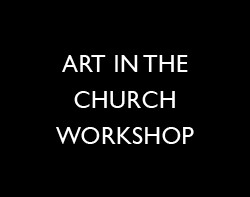‘That’s nothing but a bunch of rhetoric!’ These words are often spoken dismissively after political stump speeches by those who deem them insincere at best, deceptive at worst. But how often are they uttered after a sermon? People may not like certain sermons, but I’ve not heard many equate them with rhetoric. However, negative connotations aside, might the comparison be warranted? Politicians and preachers are both often trying to convey messages to broad and diverse audiences. More than that, they are both hoping to persuade their listeners that the message they have to share is not only worth listening to, but worth acting on.
In the days before Christian ministers (but not before politicians), the ancients developed a systematic approach to persuasive communication and called it rhetoric. Aristotle led the way by identifying and defining some key communication concepts that characterized rhetors (people engaged in rhetoric) and the art of rhetoric. He took a scientific approach to this art in the hopes of creating a system whereby rhetors could increase their chances of successful persuasion. However, he sought not simply to develop people who could persuade, but sought rather to develop people who could determine the available means of persuasion in any situation.
Aristotle wanted people to be ready and able to adapt their style and approach to communication based on the specifics of their audience and the circumstances in which they were presenting. When put this way, perhaps rhetoric sounds less sinister and more practical. Why then, ought it not be applied by preachers? Wouldn’t sermons stand a better chance of effecting positive change if preachers determined to make themselves ready to adapt to their audience and their circumstances?
This might raise some theological eyebrows, because it could be interpreted to mean that I am advocating preachers be ready to adapt the essence of their message in order to be more persuasive—in other words, to alter the Gospel. However, this is not what I’m saying at all! Instead of an alteration of the message, I am advocating the pursuit of a fuller expression of this message in ways that the intended audience can understand and receive.
One approach would be to examine two situationally dependent ‘canons’ of rhetoric—the arrangement and the style—with an eye towards shaping them in response to the audience. Another would be to seek ways to embody the message in the delivery, or, put another way, to attempt in the delivery to allow the message to inhabit the messenger. It seems to me that a willingness to do so, if borne out of a desire to communicate most clearly with one’s audience, is admirable and in keeping with the communicative adaptation inherent in the incarnation of Christ. In Christ, the Word took on the flesh of his audience and, in so doing, became a living delivery. From a communications standpoint, rhetoric seems to offer the potential of aiding those seeking to faithfully communicate the things of God.
Socrates spoke to this very issue in his dialogue with Phaedrus. As the two of them were walking along talking about all sorts of things, the subject of oratory came up. Socrates, not willing to let a ‘teaching moment’ pass him by, said that one should not seek to develop oratorical skills ‘for the sake of speaking and acting before men, but in order that he may be able to say what is acceptable to God and always to act acceptably to Him as far as in him lies.’ [1] Even Socrates recognized that the skills many use for their own gain could, and should, be used for higher purposes.
What do you think? Should there be a firewall of separation between rhetoric and communication within the church? Are there redeeming aspects of rhetoric, aspects that can be considered amoral, and therefore appropriate to be used in service to God? And finally, should rhetoric be considered an art like other more traditional artistic mediums (e.g. painting and music); and does it have the capacity, as some claim of these other mediums, to be instrumental in the revelation of the nature of God?





Importantly though is that Socrates was not just searching for a way to maximize persuasion, but also to enhance the discovery of truth, and many of use consider the artists highest calling as the exploration of truth. So, to your quesiton, “…should rhetoric be considered an art like other more traditional artistic mediums (e.g. painting and music); and does it have the capacity, as some claim of these other mediums, to be instrumental in the revelation of the nature of God?” I say YES!
St. Augustine wrestled with the very same questions – he was a trained rhetorician and highly successful teacher of rhetoric long before he came to faith in Christ. After his conversion, he left his teaching position and was even a bit critical of his former career path. Later, however, he attempted to apply rhetorical principles to preaching in On Christian Doctrine. I think he came to the belief that yes, rhetoric can be a tool of divine revelation. I’m currently working on a graduate degree with an emphasis in rhetoric, so I have to say that I agree with him.
Thanks for your note, Amy! I’m glad you mentioned Augustine. His writing in book four of ‘On Christian Teaching’ must be encouraging to you as a researcher of rhetoric. It’s been a great encouragement to me.
As someone familiar with Augustine and his views on rhetoric I’m curious to know what role you see the Holy Spirit playing in Augustine’s rhetorical theory. Do you think Augustine sees people who use rhetoric in the service of God as the ones who persuade people, or does he understand such people to be merely instruments of the Spirit, the true persuader? Or is there a middle ground that he puts forward? Do you have views on this?
Ooh – good question! I haven’t thought much about this, but let me see if I can back my way into an answer. I think that perhaps Augustine takes the middle ground. Jumping back to the earlier books in On Christian Teaching (or Doctrine, depending on your translation), it seems to me that Augustine argues that Scriptural interpretation should be done in light of God’s love, with the ultimate meaning of interpretation being God’s love. (The text is the signa pointing to God’s love as the ultimate res.) I wonder if perhaps this could be applied to what he talks about in Book 4, so that rhetoric used in the service of God could be given the same type of interpretation. If that’s the case, then the Spirit is probably the one guiding our interpretation, and God’s love is still the ultimate res. The Spirit would then have to be the ultimate persuader who points us to God’s love/gets us to the res. At the same time, the Spirit works in and through the rhetoric that we offer, so we have a responsibility to use rhetoric as best we can in God’s service. We need to put our best efforts into presenting effective signa to make the path to the res as clear as possible. Maybe Augustine worked this out in his Confessions. The Confessions are Augustine’s text, and his rhetorical training is masterfully evident in the way he shapes the text, but the Spirit can work through the text to point the reader to God’s love as the ultimate meaning. So yeah, I’m going with middle ground. But I’m by no means an Augustine expert, so maybe there’s more information that I’m missing here. Your thoughts?
Thanks, Amy, for highlighting what might best be called Augustine’s ‘hermeneutic of love’. I think it’s safe to say that Augustine saw a place for and a power in preaching in spite of the weakness of man, but he is quick to say that this power comes from God. He begins ‘On Christian Teaching’ with an admission of his inadequacy to teach people how to interpret Scripture, but then points to the miracle of the loaves and the fishes as hope that God can take what little we offer and make it more than enough to accomplish His purposes. I think this may mark his thinking about rhetoric as well. He opens Book Four with an apologetic on the use of rhetoric for the purpose of defending the truth in a way that seems to indicate a certain amount of agency for humans, but later on highlights the indispensable nature of prayer for those who claim to speak the words of God. I think one of the most important caveats to understanding his teaching in ‘On Christian Teaching’ is to remember that his aim is to aid and instruct those who are seeking to understand, interpret, and present the Scriptures. I suppose a larger question is, can his teaching reasonably extend beyond these parameters to rhetoric more generally and, if so, how far?